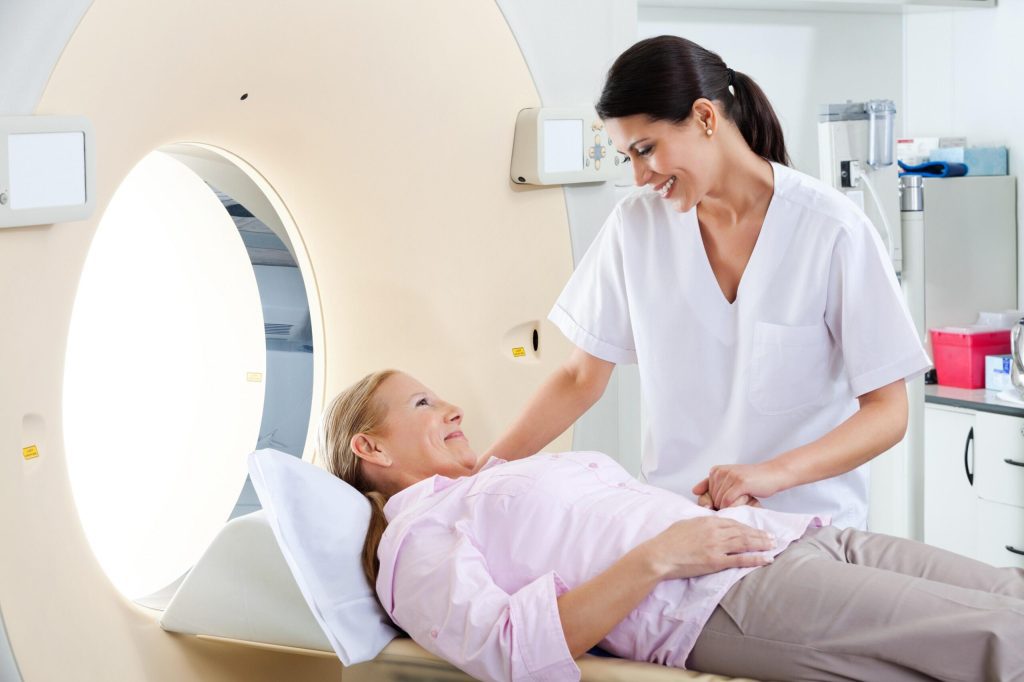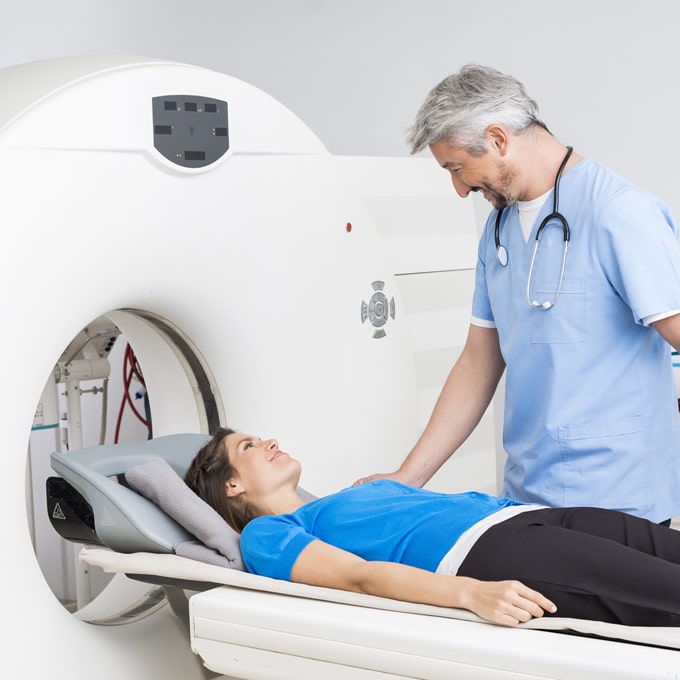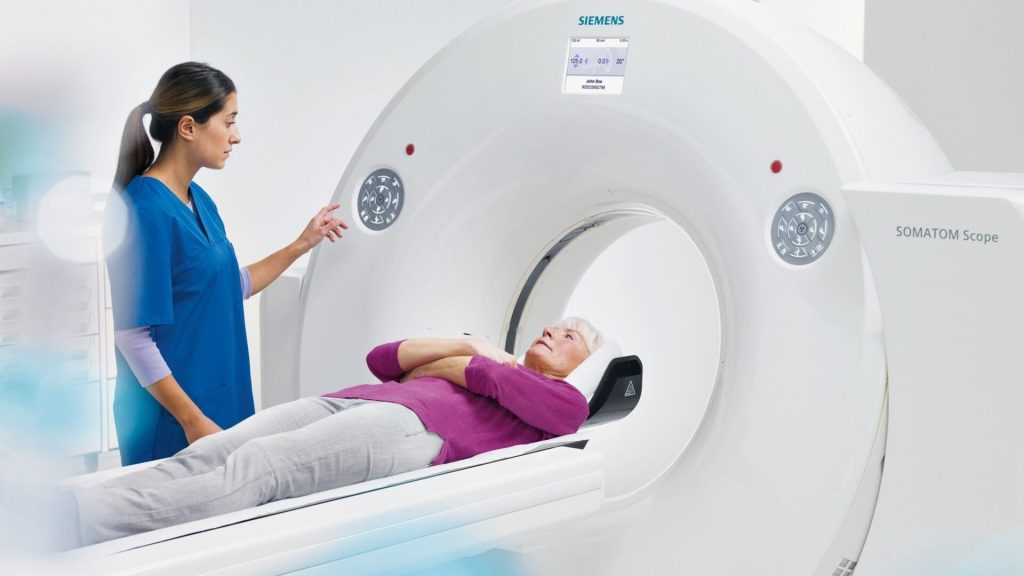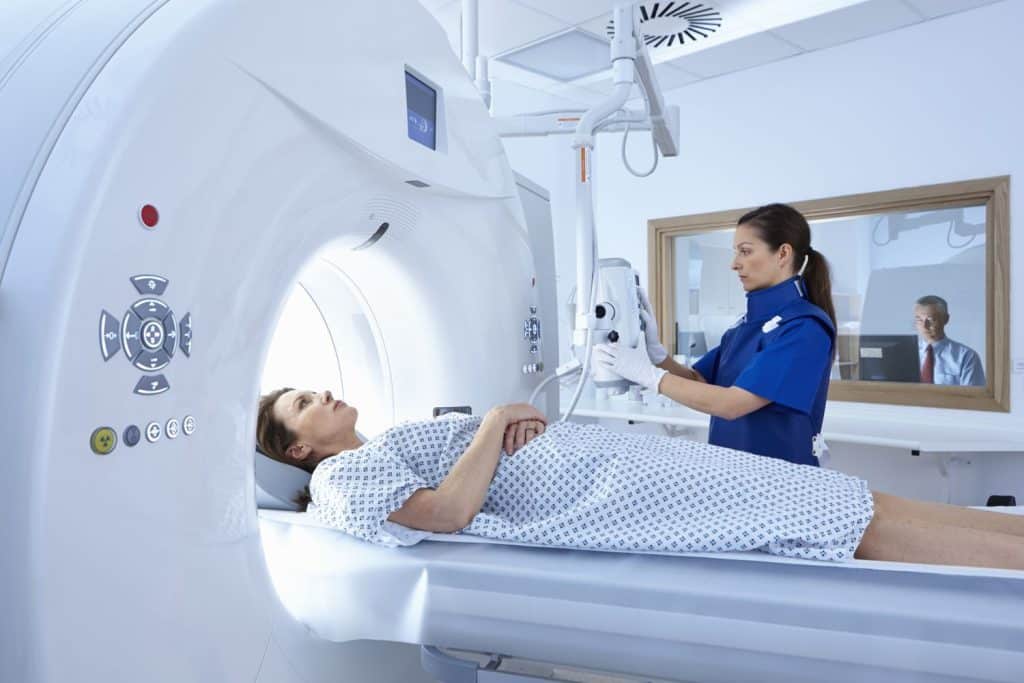Due to the unpredictability of life, everyone must occasionally deal with unpleasant circumstances. Each person experiences some ups and downs in their health. Doctors advise specialized tests for a particular set of injuries and conditions. One of the most frequent lab tests they advise is a CT scan and MRI.
A CT or computed tomography scan creates comprehensive images of the body using X-rays. In contrast, an MRI, or magnetic resonance imaging, creates detailed images of the body using a magnetic field and radio waves. While Magnetic resonance imaging are better at imaging soft tissue and can provide more detailed images of various types of tissue, CT scans are typically quicker and better suited for looking at bones. Go for a reputable lab for CT scan services for accurate and quick results.
Procedure Followed for a CT scan and MRI
In contrast to MRI, which is superior for imaging soft tissue, including the brain, spinal cord, and muscles, CT scans are quicker and can produce more detailed images of bones. Magnetic resonance imaging uses no ionizing radiation and is thought to be safer than CT scans, which use ionizing radiation that may harm cells and raise the risk of cancer. Even though they appear to be nearly identical, there are some distinctions between them.
CT scan Procedure
- The technician requests the patient to remain calm down. Moreover, he also instructs them to hold their breath for a brief period during the scan.
- The patient will then lie on a table that slides into the CT scanner.
- As the scanner rotates around the patient, several X-ray images are taken from various angles.
- The photos will be transferred to a computer, where they will be merged to provide incredibly precise cross-sectional views of the body’s interior.
MRI Procedure
- A table that slides inside the Magnetic resonance imaging machine will be used for the patient’s position.
- MRI is a slightly noisy procedure, so the doctor or technician provides earplugs or headphones to the patient. It helps them to remain calm and avoid noise from the equipment.
- The device will produce precise photographs of the body’s interior using a magnetic field and radio waves.
- The lab technician will also request the patient to remain motionless for a few minutes as the machine takes numerous pictures.
- A radiologist will examine the images after they are transmitted to a computer for analysis.
Special Note: It is significant to note that some people might have a contraindication or are allergic to contrast agent that is sometimes used in CT scans or MRIs or has metal implant that would prevent them from having one of the procedures. When you go for Emergency CT scan services or MRI, please tell the doctor about your allergies before the test starts.
Applications of CT scans and MRI
MRI and CT scans are utilized for various therapeutic and diagnostic applications. The most common applications of CT scans include:
- Recognizing and treating wounds, such as fractures or internal bleeding.
- Determining and tracking the development of illnesses, including cancer and heart problems.
- Supervising medical operations like surgery and biopsies.
- Recognizing and keeping track of the impacts of long-term illnesses like emphysema.
Some of the most common uses of MRI include:
- Brain and spinal cord imaging, which can be used to identify degenerative disorders, strokes, and brain tumors
- Joint imaging to assess injury or degeneration, including imaging of the knee, shoulder, and hip
- Images of muscles and tendons are used to assess chronic diseases or injuries.
- Imaging of internal organs such as the prostate, kidney, and liver.
- Blood vessel imaging to detect blockages or aneurysms.
Special Note: It is significant to note that some people might have a contraindication or are allergic to contrast agent that is sometimes used in CT scans or MRIs or has metal implant that would prevent them from having one of the procedures. When you go for Emergency CT scan services or MRI, please tell the doctor about your allergies before the test starts.
Final Words
Both CT scans and MRIs are used for various reasons, as suggested by doctors. Your doctor will suggest the test according to your condition. ER of Watauga has a 24/7 open and functional laboratory that efficiently perform CT scan and MRIs. You can visit our emergency room for the best services and accurate lab tests.
Frequently Asked Questions about CT Scans and MRI:
What does a CT scan show that an MRI does not?
CT scans and MRI tests are conducted for imaging the internal body organs. When it comes to organs, tissues, and skeletal structures, Computed tomography (CT) is the first pick. On the contrary, MRI provides more detailed images.
Which is better, MRI or CT scan?
Magnetic resonance imaging is better than CT scans when it comes to more transparent images. Besides this, when doctors want to look deeper into the soft tissue, they ask for an Magnetic resonance imaging instead of a CT scan. Hence, for clearer and closer images, MRI is better than a CT scan.
How long do CT scans take?
CT scans usually last up to 15 minutes, and this test takes less time than MRI, which may take hours depending upon the various factors. But remember that you will wait to get the CT scan test results as a radiologist needs to see the results once the computer scans the information
What is the most common reason for a CT scan?
Although CT scans are recommended for many reasons, one of the most common ones is chronic back pain and spinal injury. So, when your doctor has to evaluate the spinal fractures, he may ask you for a CT scan. Besides this, it is also recommended for tumors and migraines by your doctor as per the condition of the patient.
What should you not do before a CT scan?
There are a few pieces of advises that you must follow if you are going for a CT scan.
- Avoid wearing jewelry, including earrings, rings, watches, necklaces, etc.
- Do not wear clothes that have a metal zipper.
- Also, remove glasses, hairpins, hearing aids, and any dentures that can interfere with the CT scan testing.
What is a CT scan?
A CT (computed tomography) scan is a medical imaging technique that uses X-rays and computer processing to create detailed cross-sectional images of the body.
What is an MRI?
MRI (magnetic resonance imaging) is a non-invasive imaging technique that uses a powerful magnetic field and radio waves to generate detailed images of the body’s structures.
Are CT scans and MRIs the same?
No, CT scans and MRIs are different imaging techniques. CT scans use X-rays, while Magnetic resonance imaging use magnetic fields and radio waves to produce images. They provide different types of information and are used for different purposes.
Are CT scans and MRIs safe?
Both CT scans and MRIs are generally safe diagnostic tools. However, they involve different levels of radiation exposure. CT scans use X-rays, which expose the body to ionizing radiation, while Magnetic resonance imaging do not use radiation. Your healthcare provider will determine the most appropriate imaging option for your specific needs.
Are CT scans or MRIs painful?
Neither CT scans nor Magnetic resonance imaging are typically painful. However, you may experience some discomfort depending on the specific procedure. The imaging technologist will guide you throughout the process and ensure your comfort.
How long does a CT scan or MRI take?
The duration of a CT scan or MRI can vary depending on the specific body part being examined and the complexity of the scan. Generally, a CT scan takes a few minutes to complete, while an Magnetic resonance imaging can take anywhere from 30 minutes to over an hour.
Will I need any special preparations for a CT scan or MRI?
Your healthcare provider will provide you with specific instructions based on the type of scan you require. In some cases, you may need to avoid eating or drinking before the procedure or remove certain metallic objects.
Can I have a CT scan or MRI if I have a metal implant or device?
It depends on the type of implant or device. Some metallic objects may interfere with the Magnetic resonance imaging, while others are safe. It’s crucial to inform your healthcare provider about any implants or devices you have before scheduling the scan.
Are CT scans or MRIs used for specific conditions?
CT scans are often used for assessing bone fractures, lung conditions, and identifying internal injuries. Magnetic resonance imaging are frequently used for evaluating soft tissues, such as the brain, spinal cord, joints, and organs.
How do I prepare for a CT scan or MRI?
Follow the specific instructions given by your healthcare provider. These may include fasting for a certain period, avoiding certain medications, wearing loose-fitting clothing, and removing jewelry or metallic objects.










